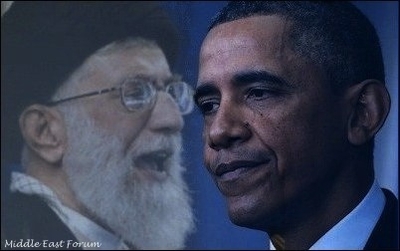Obama is risking it all on Iran and here’s why
Dr. John C. Hulsman/Al Arabiya
Monday, 20 April 2015
“Though this be madness, yet there is method in’t.”- William Shakespeare, Hamlet, Act II Scene II
One of the great failings of modern foreign policy analysis is to ascribe randomness to those one doesn’t agree with. This has certainly held true in most analyses of Barack Obama’s controversial Iran nuclear initiative; if I had a dollar for every skeptical analyst who believes that the president does not have a plan, I’d be rich. Yet however emotionally satisfying such a position may be – that one’s rivals are essentially clueless – it does little to actually explain what is going on in Washington.
For, to quote Shakespeare, there is a definite method to the president’s madness. Why has President Obama come to stake everything on the putative Iran deal? Why does it seem he is far less concerned with the details of an accord than with reaching one? The answer – despite his critic’s fantasies – is not because he is stupid, aimless, or does not understand what he is doing. Rather geopolitical grand strategy explains the seemingly inexplicable.
Make-or-break factor
For despite the vast majority of the president’s many critics assuring us he has no idea what he is doing, this is far from the truth. The Iran deal has become the central make-or-break factor determining whether Obama will realize his carefully crafted overall foreign policy strategy, or whether his policy is doomed to failure. America’s oft-stated “Pivot to Asia” remains the White House’s overall strategic goal. The president wants America to spend far more time and effort in a region where much of the world’s future growth will occur and where much of its political risk is bound to threaten to kill the goose that just might lay the golden egg. Or, as the American bank robber (and philosopher) Willie Sutton put it, when asked why he robbed banks: “That’s where they keep the money.” As Asia is where they keep the money now and increasingly in the future, it is entirely understandable that America wants to direct its time and attention to the region.
Further, tactical conditions there are promising for the United States.
Due to Chinese bullying in the South China and East China Seas, many important countries in the region increasingly yearn for America to play a larger role there, if only to allow them to play Washington off Beijing. Nations such as Japan, Vietnam, India, South Korea, the Philippines, and Australia are all calling for America to do more, a welcome change for a Washington unused to much popularity. The region’s other great power, China, lurks as the only possible peer competitor to America in the long-term; spending time in the region carefully monitoring Beijing’s progress makes eminent sense.
Economic gambit
Just this past week the Pivot Strategy received a little commented upon boost, as the U.S. Congress indicated it would allow a simple up or down vote on the Trans-Pacific Partnership (TPP), the ambitious region-wide trade deal that would economically link America’s present and future Asian allies to the U.S., all the while excluding Beijing from being a founding member. This huge economic gambit – if accompanied over time by increased military and diplomatic moves – would allow Obama to successfully implement his strategy.
But to pivot to Asia two other corresponding diminutions in America’s global presence are absolutely necessary. The U.S. has to do far less in Europe (witness America’s non-action over Russian President Putin’s move into Ukraine) and the Middle East (here is non-action in Syria and limited role in Libya are indicative). To successfully lessen America’s strategic footprint in these two (in America’s eyes) vexing regions means that Iran must be brought in from the cold.
Rather than sniping as a dangerous revolutionary power on the Middle East’s outskirts, a nuclear deal with the West would bring Iran into the regional concert of great powers, amounting to Washington viewing Tehran as just another important actor in line with Turkey, Egypt, Saudi Arabia, and Israel. If Iran can be viewed as just another status quo power in the region, then and only then can America morph into an off shore balancer in the Middle East, still involved in tending to a regional balance of power but with a greatly reduced strategic footprint.
This is an absolute prerequisite for the Asia Pivot to be put into practice. Without a deal, the entire Asia Pivot strategy becomes impractical, as Iran remains a dangerous revolutionary power that America must deal with in a hands-on manner, not allowing the Americans to maintain a lesser role in the Middle East. For Obama, the merits of the nuclear deal matter far less than the accord’s supreme importance as the fulcrum for the White House’s overall global strategy of pivoting to Asia.
So there is method to Obama’s madness, as geopolitics explains why a nuclear deal at any cost is the administration’s default position.























